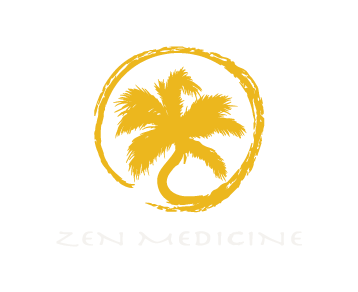Understanding Integrative, Functional, and Holistic Medicine: A Comprehensive Approach to Health
In recent years, there has been a growing interest in health approaches that go beyond the boundaries of conventional medicine. Integrative, functional, and holistic medicine are three such approaches that are gaining popularity, offering a more comprehensive perspective on health and wellness. But what exactly are these practices, how do they differ from traditional medicine, and who can provide these types of care?
What is Integrative Medicine?
Integrative medicine combines conventional Western medicine with complementary and alternative therapies to treat the whole person—mind, body, and spirit. The goal is not just to treat symptoms but to address the underlying causes of disease and to support overall health and well-being.
-
Mind: This aspect includes mental and emotional health. Integrative medicine recognizes that psychological well-being is crucial to overall health, so mental health counseling or therapy is often incorporated into treatment plans to address issues like anxiety, depression, or stress.
-
Body: Refers to physical health. Integrative medicine aims to care for the physical body through a combination of conventional medical treatments, like medication and surgery, and alternative therapies, such as nutrition, exercise, and acupuncture.
-
Spirit: Involves a person’s connection to something greater than themselves, often a higher power or spiritual belief. Integrative medicine might include practices that nurture the spirit, such as meditation, prayer, or spiritual counseling, acknowledging that spiritual well-being can significantly impact overall health.
What is Functional Medicine?
Functional medicine is a systems biology-based approach that focuses on identifying and addressing the root cause of disease. Rather than treating symptoms, functional medicine practitioners work to understand the interactions between genetic, environmental, and lifestyle factors that influence long-term health and chronic disease.
Functional medicine operates on the principle that each patient is unique, with a distinct set of circumstances that influence their health. Practitioners use detailed health histories, advanced diagnostic tests, and a thorough understanding of the patient’s lifestyle to create a personalized treatment plan. This plan often includes:
-
Nutritional interventions: Personalized diet plans and supplementation to correct deficiencies or imbalances.
-
Lifestyle modifications: Recommendations on sleep, exercise, and stress management.
-
Mind-body practices: Techniques such as meditation or mindfulness to support mental health and emotional well-being.
What is Holistic Medicine?
Holistic medicine emphasizes treating the whole person—body, mind, and spirit—rather than just the symptoms of a disease. It shares similarities with integrative medicine but is often broader in its approach, with a strong focus on natural healing and the body’s ability to heal itself. Holistic medicine practitioners view health as a balance between physical, emotional, social, and spiritual aspects of life, and they often use a variety of natural and conventional therapies.
Holistic Practitioners Address Three Major Areas:
1. Nutrition & Detoxification
What you put in your body directly influences how you feel, function, and heal. Our practitioners emphasize the importance of:
-
A balanced, whole-food diet rich in organic, nutrient-dense ingredients
-
Proper hydration to support cellular health and detox pathways
-
Herbal medicine and homeopathy to restore natural balance and support organ systems
-
Identifying and reducing exposure to environmental toxins, chemicals, and processed foods
By nourishing the body and minimizing toxic burden, we help you create a strong foundation for healing.
2. Movement & Physical Activity
Consistent movement is essential for maintaining energy, mobility, and metabolic health. Our approach to exercise is gentle, personalized, and sustainable—designed to support your body without overwhelming it. Benefits include:
-
Improved circulation and lymphatic flow
-
Enhanced flexibility and muscle strength
-
Better mood regulation and mental clarity
-
Support for immune and cardiovascular function
Whether it’s yoga, walking, stretching, or strength training, our goal is to help you move in a way that feels aligned with your body and enhances overall well-being.
3. Stress Management & Energy Healing
Chronic stress can be one of the most damaging influences on health. Holistic practitioners incorporate a range of mind-body therapies to help calm the nervous system and promote emotional balance. These may include:
-
Reiki and energy healing to rebalance the body’s energetic pathways
-
Guided meditation and mindfulness practices to improve emotional resilience
-
Sound therapy using vibrational frequencies to soothe the mind and body
-
Aromatherapy with essential oils to uplift the mood and promote relaxation
Together, these techniques encourage the body to shift out of fight-or-flight mode and into a state of healing, restoration, and inner peace.
How Are These Approaches Different from Conventional Medicine?
Conventional medicine, also known as allopathic or Western medicine, is what most people think of when they go to the doctor. It primarily focuses on diagnosing and treating acute symptoms and conditions, often with the use of pharmaceuticals, surgery, or other interventions. This approach is typically disease-centered and tends to emphasize quick fixes for symptoms rather than exploring underlying causes.
While conventional medicine is highly effective in many situations—particularly for acute or life-threatening conditions—it may not always address the root causes of chronic illnesses or consider the broader aspects of a patient’s well-being. Integrative, functional, and holistic medicine offer a more comprehensive, patient-centered approach.
Types of Practitioners
Integrative Medicine Practitioners:
-
Typically, integrative medicine can be practiced by a wide range of healthcare providers, including medical doctors (MDs), osteopathic doctors (DOs), nurse practitioners (NPs), and physician assistants (PAs).
-
These practitioners often have additional training in complementary and alternative therapies and take a holistic approach to care.
-
Examples include a primary care physician who incorporates acupuncture into their practice or a cardiologist who uses both conventional treatments and meditation techniques to manage heart disease.
Functional Medicine Practitioners:
-
Functional medicine is usually practiced by medical doctors (MDs), osteopathic doctors (DOs), naturopathic doctors (NDs), and sometimes chiropractors (DCs) and nurse practitioners (NPs) who have completed specialized training in functional medicine.
-
These practitioners focus on deep investigative work to understand the root causes of a patient’s symptoms and conditions, often requiring more time and detailed analysis than conventional practices.
Holistic Medicine Practitioners:
-
Holistic medicine can be practiced by a variety of practitioners, including medical doctors (MDs), osteopathic doctors (DOs), naturopathic doctors (NDs), chiropractors (DCs), and holistic health coaches.
-
These practitioners often incorporate natural remedies and lifestyle counseling into their treatments, with a strong emphasis on self-healing and preventive care.
-
Examples include naturopaths who use herbal remedies and nutrition to treat patients or holistic health coaches who guide individuals in making healthy lifestyle changes.
Conventional Medicine Practitioners:
-
Conventional medicine is practiced by medical doctors (MDs), osteopathic doctors (DOs), nurse practitioners (NPs), physician assistants (PAs), and other licensed healthcare providers.
-
These practitioners are trained in evidence-based medicine, focusing on diagnosing and treating diseases primarily through established medical interventions like drugs, surgery, and other procedures.
Why Choose Integrative, Functional, or Holistic Medicine?
Many patients are drawn to integrative, functional, and holistic medicine because they offer a more personalized approach to healthcare. These methods recognize the complexity of the human body and the interconnections between different systems, aiming to promote overall health and prevent illness, rather than just treating symptoms as they arise.
-
Integrative medicine appeals to those seeking a blend of conventional and alternative treatments.
-
Functional medicine is favored by individuals interested in exploring the root causes of their health issues, particularly for chronic or complex conditions.
-
Holistic medicine attracts those looking for natural, preventive approaches and a focus on self-healing.
Conclusion
Integrative, functional, and holistic medicine represent a shift towards a more comprehensive, individualized approach to health care. By addressing the whole person—mind, body, and spirit—rather than just their symptoms, these approaches offer promising alternatives—or complements—to conventional medicine.
Understanding the differences and the types of practitioners involved can help you make more informed decisions about your health and wellness journey. Whether you’re managing a chronic illness or simply seeking to enhance your overall well-being, these approaches offer valuable paths toward healing.
tools for achieving optimal health.
Book now with our expert Patient Care Coordinator to learn more about our services and get scheduled for your complimentary consultation with our Licensed Medical Provider or our Board Certified Holistic Health Practitioner. Whether you’re exploring holistic options for the first time or ready to take the next step in your wellness journey, we’re here to guide you every step of the way. Let us help you take the first step toward feeling your best.
BOOK ONLINE



